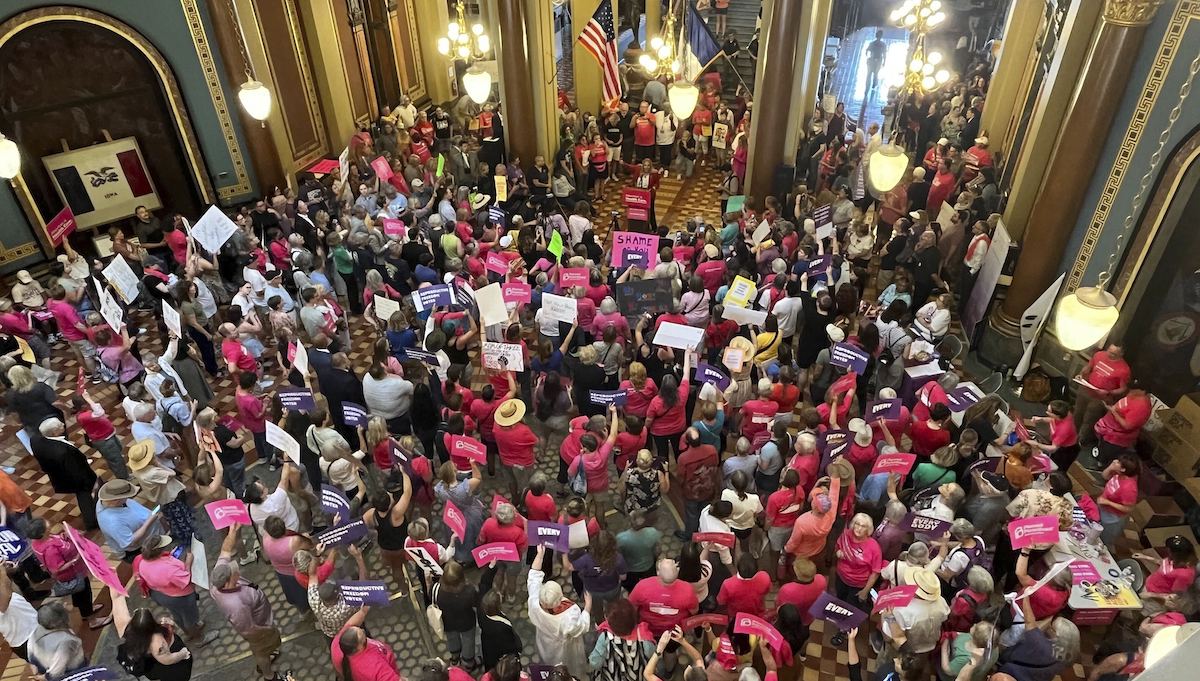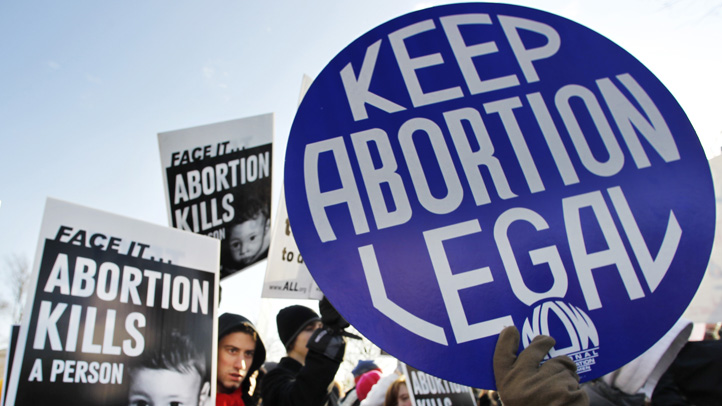
An Iowa judge on Monday temporarily blocked the state’s new ban on most abortions after about six weeks of pregnancy, just days after Gov. Kim Reynolds signed the measure into law.
That means abortion is once again legal in Iowa up to 20 weeks of pregnancy while the courts assess the new law’s constitutionality.
The new law prohibits almost all abortions once cardiac activity can be detected, which is usually around six weeks of pregnancy and before many women know they are pregnant.
The Republican-controlled Legislature approved the measure in a rare, all-day special session last week, prompting a legal challenge by the ACLU of Iowa, Planned Parenthood North Central States and the Emma Goldman Clinic. Judge Joseph Seidlin held a hearing on the matter Friday, but said he would take the issue under advisement — just as Reynolds signed the bill into law about a mile away.
We've got the news you need to know to start your day. Sign up for the First & 4Most morning newsletter — delivered to your inbox daily. >Sign up here.
Abortion providers said they scrambled last week to fit in as many appointments as possible before the governor put pen to paper, preemptively making hundreds of calls to prepare patients for the uncertainty and keeping clinics open late.
Reynolds swiftly put out a statement underscoring her intention to fight the issue all the way to the state Supreme Court.
“The abortion industry’s attempt to thwart the will of Iowans and the voices of their elected representatives continues today," she said.
More: Iowa abortion rights
The ruling Monday does specify that while the law is temporarily paused, the state's Board of Medicine should proceed with creating rules for enforcement, as the law specifies. That way the guidance for health care providers would be well defined if the law were to be in effect in the future.
There are limited circumstances under the law that would allow for abortion after the point in a pregnancy where cardiac activity is detected: rape, if reported to law enforcement or a health provider within 45 days; incest, if reported within 145 days; if the fetus has a fetal abnormality “incompatible with life;” or if the pregnancy is endangering the life of the pregnant woman.
Seidlin specified that his ruling today hinges on the “undue burden” test, which is an intermediate level of scrutiny that requires laws do not create a significant obstacle to abortion.
The state Supreme Court, in its latest rulings on the issue, said that undue burden remains in effect “with an invitation to litigate the issue further,” Seidlin wrote. “This, perhaps, is the litigation that accepts the invitation.”
Using that standard, abortion advocates are likely right to say the new law violates Iowans’ constitutional rights, Seidlin said, which led him to grant the temporary block.
Lawyers for the state argued — and will likely continue to argue — that the law should be analyzed using rational basis review, the lowest level of scrutiny to judge legal challenges.
“We are deeply relieved that the court granted this relief so essential health care in Iowa can continue,” said Abbey Hardy-Fairbanks, medical director of the Iowa City-based Emma Goldman Clinic, in a statement. “We are also acutely aware that the relief is only pending further litigation and the future of abortion in Iowa remains tenuous and threatened.”
Most Republican-led states have drastically limited abortion access in the year since the U.S. Supreme Court overturned Roe v. Wade and handed authority on abortion law to the states. More than a dozen states have bans with limited exceptions and one state, Georgia, bans abortion after cardiac activity is detected.
Several other states have similar restrictions that are on hold pending court rulings, as is now the case in Iowa.



